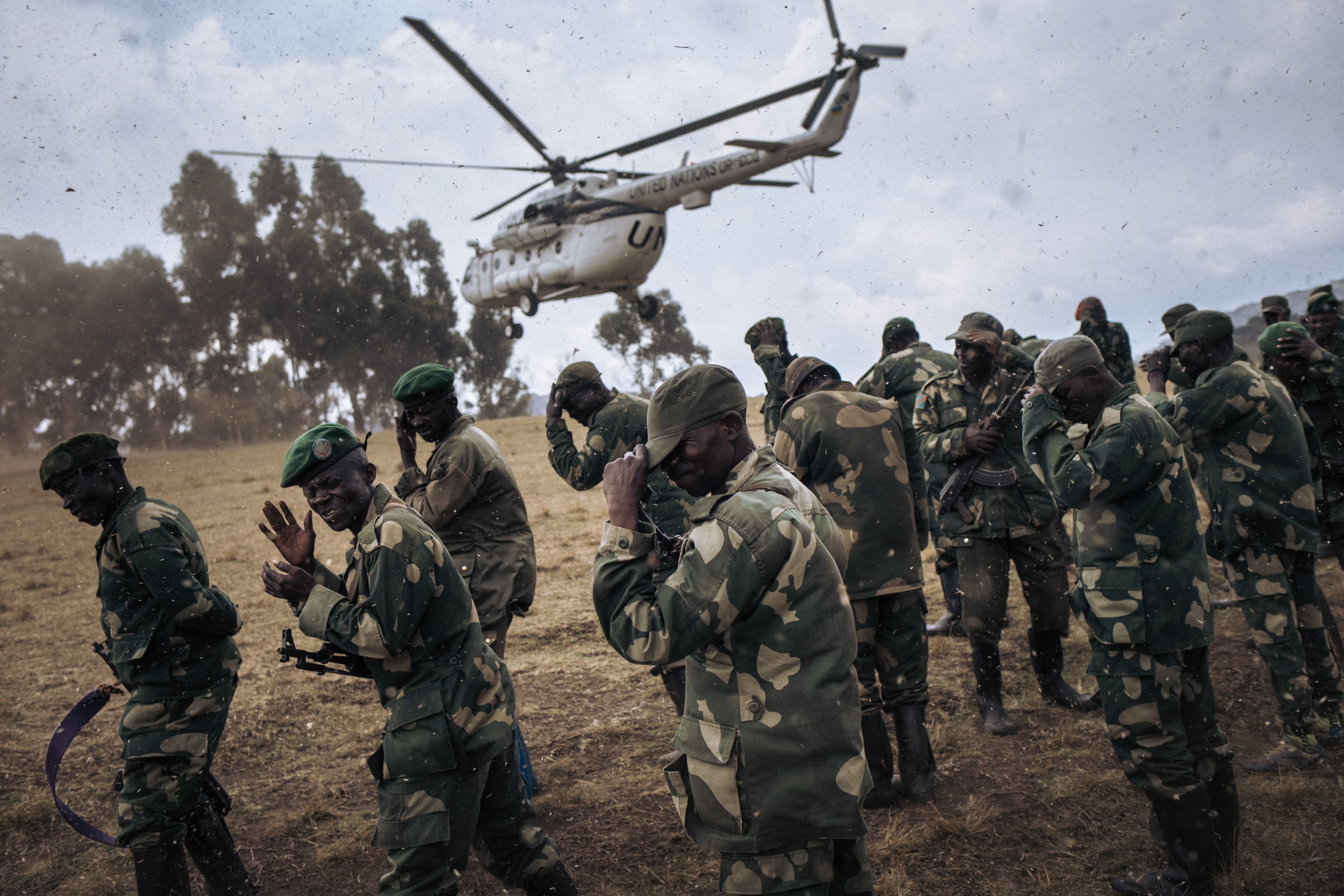
Goma, DRC – For decades, the Democratic Republic of the Congo has been the scene of one of the world’s longest-running conflicts.
In the latest iteration which began in May, its army has been fighting the M23 rebel group, which is waging its most sustained offensive since a 2012-2013 insurrection when it seized vast swathes of territory.
By area, the vast Central African state is the second-largest country on the continent and the 11th-largest in the world.
That space, especially its mineral-rich eastern region, has been the battleground for more than a hundred armed groups fighting for control of territory there or using it as a base to launch attacks into some of its immediate neighbours – Angola, Burundi, Central African Republic, Rwanda and Uganda.
Consequently, that has led to the death and displacement of many Congolese citizens.
This month, the Norwegian Refugee Council declared the situation in the DRC as the world’s most neglected refugee crisis – for a second year running. At least five million people are internally displaced and one million more fleeing abroad, the aid group said.
But how did we get here?
What is happening?
- The eastern DRC has been plagued by fighting by at least 122 rebel groups, according to a recent count by the United Nations, for more than 25 years.
- The Allied Democratic Forces (ADF), Cooperative for the Development of Congo (CODECO), M23, and the Mai-Mai are among the most deadly in North Kivu and Ituri, two mining provinces there, bordering Rwanda and Uganda.
- On May 6, 2021, DRC President Félix Tshisekedi declared a state of siege following the growing insecurity in the east of the country in both provinces, with military governors appointed.
- Still, the fighting has continued, as even camps for displaced people and other civilian areas are being targeted. According to a UNCHR statement, 94 people were killed at an internally displaced persons (IDP) site in Djugu territory in February.
- The UNHCR says more than 72,000 people have been displaced by the fighting in recent weeks.
- On March 29, eight UN soldiers died in a March 29 helicopter crash in North Kivu. The incident remains unexplained, according to a UN statement but Kinshasa has blamed the M23 for the incident.
- The DRC and Rwandan governments are now accusing each other of supporting or endorsing different armed groups and military provocation.
- One Congolese soldier has been shot dead, leading to the DRC closing its border with Rwanda.
Who are some of the players in the conflict?
- CODECO is one of the armed groups in Ituri. It is a self-defence militia essentially composed of people from the Lendu ethnic group. The group has operated since 2013 and masterminded many killings but its grievances remain unclear.
- Ituri has also been affected by violence attributed to the ADF rebels, considered the deadliest of the multiple armed groups in the region. The ADF was founded in Uganda in 1995 before its relocation to the DRC.
- The Mai-Mai are fighters who claim to be protected by magical properties of water. The group started as a rebellion that broke out in 1964.
- On March 23, 2009, the Congolese government signed a peace agreement with a pro-Tutsi militia. The M23 fighters named themselves in reference to this agreement. Nearly a decade after their disappearance following the 2012-2013 insurrection, the M23 resurfaced last November to attack positions of the Congolese army.
How is Rwanda involved?
- In November 2021, the M23 rebels were accused of attacking army positions in the Rutshuru territory in eastern DRC. Since then, they have continued attacks against the Congolese army.
- According to a recent official statement by General Sylvain Ekenge Bomusa, spokesman of the DRC army, the Tutsi-led M23 movement is supported by Rwanda.
- After the Congolese statement, the Rwandan army denied the accusations. It countered by saying its neighbours had attacked its army, along with the Democratic Forces for the Liberation of Rwanda (FDLR), a militia comprising mostly Hutu fighters. “Two soldiers of the Rwandan Defence Forces were abducted while on patrol,” its statement said.
- Rwandan President Paul Kagame, a Tutsi, has repeatedly expressed “his disappointment at not being included in the military operation against the ADF” and is believed to consider Ugandan interventions in the DRC as a territorial threat . He has said he is considering “various mechanisms to address the security situation in eastern DRC”.
- Kagame has also not been on the best of terms with Uganda’s Yoweri Museveni, his former mentor, although that relationship is improving.
- “The Ugandan intervention has also had profound geopolitical implications,” a report by the Congo Research Group said. “The operation disrupted Rwanda and was one of the reasons for the resurgence of the M23 rebellion.”
- In Kinshasa, hundreds of activists and civil society groups have held anti-Rwandan rallies, blaming Kigali for instigating conflict in the eastern region for decades – since Hutu genocidaires first fled Rwanda after the 1994 crisis.
What happens next?
- Kenyan President Uhuru Kenyatta has called for the deployment of a regional military force in eastern DRC. On Tuesday, this was agreed to in the presence of the regions’s leaders including Kagame.
- The DRC has agreed to this in order to re-establish the peace process but does not want the participation of Rwanda.
- Ahead of Rwanda hosting the Commonwealth Heads of Government Meeting (CHOGM) in Kigali, there are expectations that Kagame will seek dialogue with Tshisekedi. The DRC president has also called for British prime minister Boris Johnson to intervene, in the wake of the UK’s controversial asylum deal with Rwanda.







